Does Hyaluronic Acid Work in Dry Climates?
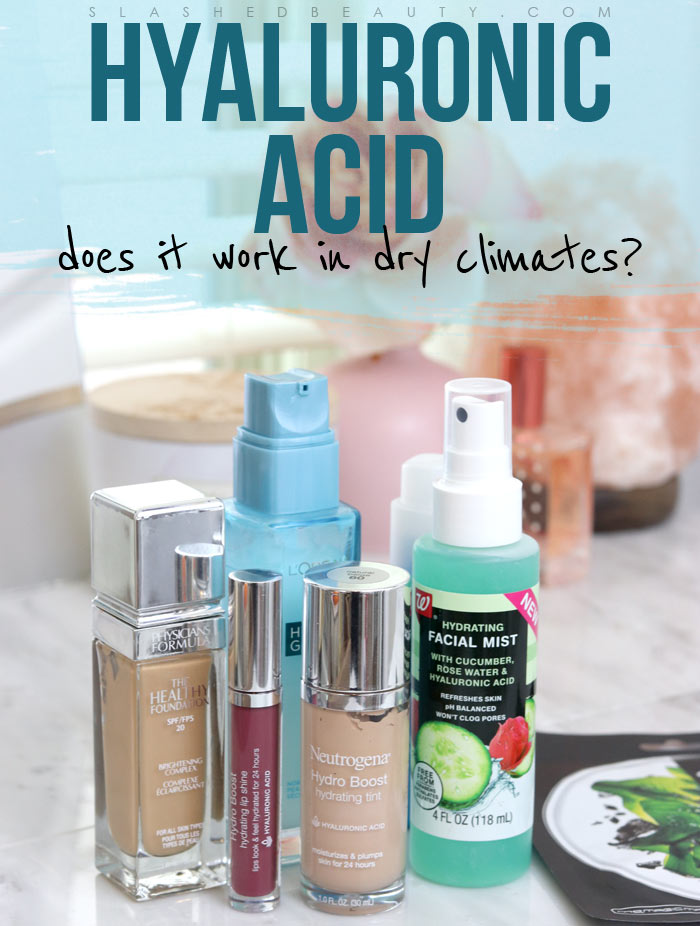
This winter, my skin has had a mind of its own. It’s been the most dry and irritated ever. I’m running humidifiers, I’m drinking a ton of water, and of course I’m applying a ton of moisturizer. I’ve also switched up my makeup routine to incorporate products that look decent on top of dry skin and that use moisturizing ingredients to help nourish while I wear it.
A couple of weeks ago, I shared my makeup routine for dry sensitive skin on my YouTube channel. In that video, I mentioned a foundation I’m loving that contains hyaluronic acid: the Neutrogena Hydroboost Skin Tint. It has a comfortable and natural skin finish and has enough coverage to even out my skin tone and conceal blemishes. One of the big draws for me, though, is that the hyaluronic acid is supposed to help moisturize and plump the skin.
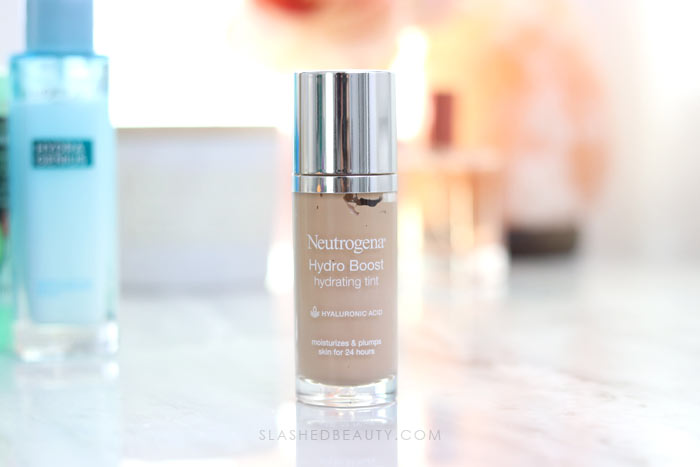
So I post the video mentioning this product and how I love wearing it here in Vegas where it’s been cold and is always dry, and I get a comment that reads:
“Hyaluronic acid should not be used in a dry climate cause it draws moisture from the air into the skin. If you use it and there us no moisture in the air around you, it draws moisture from your skin causing even more dryness.”
Surely, this isn’t right? But then I started to think about how despite slathering hyaluronic moisturizer on my skin at night, I was still waking up with flaky skin. Was there some truth to this comment? I decided to get some expert opinions on the matter.
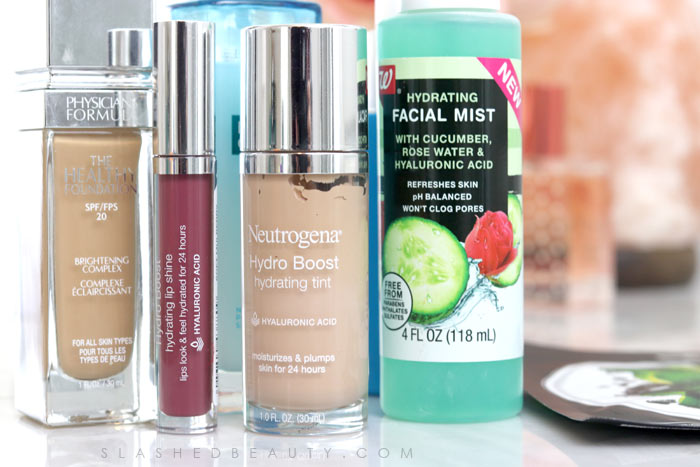
First off, in case you’re new to the hyaluronic acid craze, let’s clarify what the heck it even is. “Hyaluronic acid is a sugar molecule that occurs naturally in the skin. It helps to bind water to collagen, trapping it in the skin, so that skin can appear plumper, dewier and more hydrated,” explains LA Dermatologist Tsippora Shainhouse, MD, FAAD. “As we age, we lose collagen and hyaluronic acid, so there is less hydration in the skin. Also, harsh weather, heaters, skin care products and underlying skin conditions can cause tiny breaks in the protective skin barrier, allowing water to escape, leaving skin less hydrated.”
Hyaluronic acid molecules can hold 1000x their weight in water, and “pull in moisture from both the environment and from the deeper dermis” says Shainhouse. Alright, that all sounds great. But what about when you live in an environment with little moisture in the air?
Erin Murphy, a Medical Aesthetician from San Diego, makes a pretty solid point, “If you’re in a dry climate, hyaluronic acid can actually make you feel dry. Hyaluronic acid generally works by pulling moisture from the environment into your skin, but in a dry climate where there is no moisture in the air, it can actually pull that moisture from your skin. This is why some people complain that [the ingredient] actually dries out their skin instead of hydrating it.”
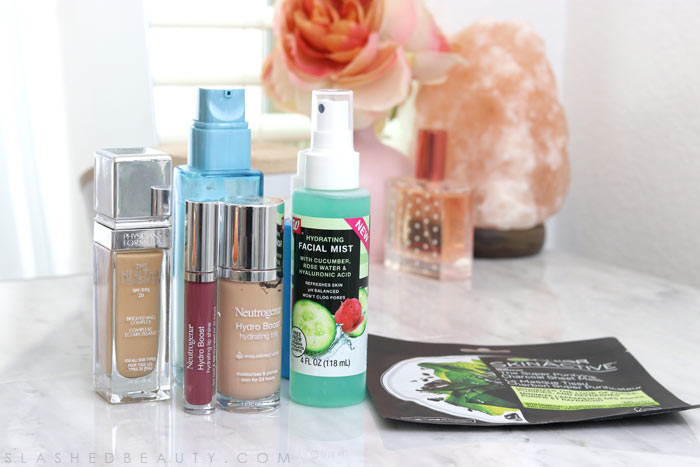
So while it seems that hyaluronic acid is most effective in moist environments, don’t go throwing out all your serums quite yet. Your products containing the popular ingredient can still work in dry climates if you apply them correctly.
“Never apply hyaluronic acid to dry skin. After cleansing or toning, make sure your skin is slightly damp when you apply your serum. Then, when your serum is absorbed, which should take less than 5 minutes, you’ll want to apply a moisturizer on top. This will form an occlusive barrier and seal the hyaluronic acid into the skin and provide another form of moisture for the HLA to use,” suggests Murphy. Shainhouse agrees that using a “barrier moisturizer” will help your hyaluronic products work better in dry environments.
My Favorite Hyaluronic Acid Beauty Products:
So now that I have the facts, I’m definitely tweaking my routine a bit. First off, I’m still using the Neutrogena Skin Tint because it’s genuinely a comfortable and lightweight foundation that I love. But prior to application, I make sure that I have on moisturizer and a moisturizing primer for a boost. In my skin care routine, I’m using a cream on top of my hyaluronic acid products to seal in the hydration. Since doing this, I am actually feeling a difference in the morning and have been experiencing less flaky patches. Yay for learning something new today!
Do you use hyaluronic acid skin care? Is it effective in your climate?

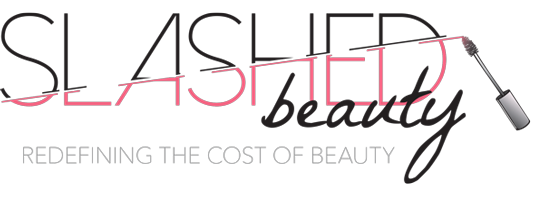

Hello Miranda, I recently learned about a product line for use by climate zone. It’s called Pour Moi. Have you had any experience with it? It sounds right for us gals in Las Vegas.
You know, I’ve heard of the brand but I hadn’t realized that’s what they’re all about. That’s genius!!
Hi there! What if your moisturizer or cream has hyaluronic acid in it? I have a cream that I’m wanting to try, it has hyaluronic acid in it, but it’s further down the list with occlusive ingredients in front of it. Would love to know your thoughts, I live in a very dry climate and use tretinoin at night.
As suggested in the article, it’d be best if you paired it with a non-hyaluronic moisturizing layer. But the hyaluronic acid would come first, moisturizer second. Is it a thick cream?
I also found this out the hard way! I’m so happy to come across this article. Did you find that using high or low molecular weight Hyaluronic Acid Serum worked better in the dry climate?
Hello fellow Vegas girl. Which ones do you recommend for Vegas? I am 57, have pretty great skin and more on the oily side. I am looking at the sea of products and having a tough time deciding. What would be your top 3 for Vegas? Thanks for all the information?
First off, definitely check out my recent post about the best drugstore sunscreens for the face since we’re getting a lot of sun now in Vegas! For oily skin, the Neutrogena Sheer Dry-Touch sunblock would be a great daily moisturizer and sun protection product for you! Here is a list of other products I’ve used with a lot of success here in Vegas for spring & summer!
Yes! Yes! Yes! It doesn’t even have to be in a dry climate. As I approached menopause, my oily-my-whole-life skin started to flake on me…and was still oily. I had heard about hyaluronic acid and happened to have a deluxe sample of it. It made it worse! Then I started doing some digging on my own and discovered exactly what you shared in your post. I also found out what carrier oils worked best for my skin and used an oil blend as an occlusive to keep the flaking at bay. Thanks so much for your post. You’re the only blog I’ve read that has talked about this.
Isn’t it so interesting how skin can change and react differently to the most popular ingredients!
Thanks for sharing this as I think we have similar skin. I’m in S. California near Venice beach 4 miles straight and 8 to Santa Monica I also spend lots of time running in this dry climate but won’t complain on pretty awesome weather year round. Always on the search for a great moisturizer.
That’s so funny because I would consider the beach area super humid!! It’s all about what we’re used to.
You just said you live right near the beach. That’s not a dry climate.
This is really interesting and makes a lot of sense! Thank you for researching this! I never felt that hyaluronic acid alone did much to hydrate my skin. I always put a heavier moisturizer on immediately after a serum with HA and other light ingredients. I have to personally disagree with the idea of waiting 5 minutes before the heavier one – I think that’s too long!
Oh! I said that it would take less than 5 minutes to wait– probably only 1-2 realistically! Yes, putting on the heavier cream over HA products has been so much more effective for me now!